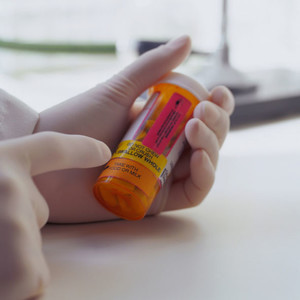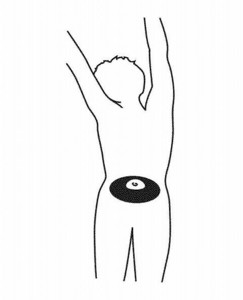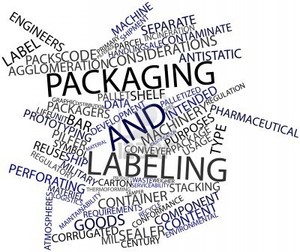Pay-for-delay is a constant issue in both the US and Europe. But how did these settlements first come about and how have US courts attitudes towards such deals affected the pharmaceutical market [1].
Pay-for-delay deals occur when brand-name companies pay generics companies challenging their patents to delay the introduction of lower-cost generic medicines in return for a payment or payments from the originator company. They arise due to the 1984 Hatch-Waxman Act, which created an abbreviated pathway for generics to obtain approval in the US. In order to use this abbreviated pathway, a generics company must certify that its abbreviated new drug application (ANDA) does not infringe on any patents or that such patents are invalid – in which case the patent holder must be informed. Patent holders then have the opportunity to sue generics companies for infringement – which in turn leads to out-of-court settlements.
It all began back in 1995, when generics manufacturers Upsher-Smith (Upsher) and ESI Lederle submitted ANDAs to FDA for a generic version of Schering Plough’s (Schering) sustained-release K-Dur (potassium chloride) tablets, which contained a patented controlled-release coating. The generics companies claimed that their products would not infringe on Schering’s patent because of differences in the coating’s chemical composition. Schering filed a patent infringement suit against the two generics makers, but settled out of court, with an agreement from Upsher not to market its generic drug until 1 September 2001 and from ESI Lederle not to market its generic drug until 1 January 2004.
Since then most courts have deemed these deals legal, as long as generics manufacturers were not paid to refrain from bringing a generic drug to the market after the brand-name drug’s patents expired.
The agreements, while they raise concerns under the Sherman Antitrust Act*, which prohibits inter-company agreements that unreasonably interfere with competition, have been seen to be legal, because patents confer the right to stop competitors from marketing products to which the patents apply. This conclusion meant that pay-for-delay deals were not scrutinised unless they extended beyond the patent expiry of the originator drug.
However, continued pressure from the US Federal Trade Commission (FTC) seems to be finally working. In July 2012, the US Court of Appeals for the Third Circuit broke with the long-standing idea that these deals are legal, ruling them to be anti-competitive. The court noted that the intention of Hatch-Waxman was to increase competition between brand-name and generics manufacturers in order to lower drug prices, something which was frustrated by these agreements.
This can only come as a relief to the FTC, which believes that these deals delay generics entry by 17 months longer on average and cost American consumers and taxpayers US$3.5 billion a year in higher drug prices [2]. FTC has been lobbying for legislation to curb or ban these deals for years and has managed to get US Senators and President Obama to introduce legislative proposals to the House and Senate [3]. FTC also points to Congressional Budget Office estimates, which reports that doing away with such agreements would reduce federal government debt by US$5 billion over 10 years.
The US courts friendly attitude to these deals has also led to an increase in their use. In 2005, only three settlements included reverse payments, compared to 31 in 2010, according to the FTC [2].
However, both originator and generics companies disagree that these deals delay generics entry. Generics companies believe that ‘patent settlements have never prevented competition beyond the patent expiry, and generally have resulted in making lower-cost generics available months and even years before patents have expired’. While originator companies add that ‘patent settlements are a vital aspect of a patent owner’s ability to protect intellectual property’ [3].
The decision of the Third Court that pay-for-delay deals are anti-competitive is now expected to go to the US Supreme Court. But it looks like pay-for-delay deals may finally be ruled as anti-competitive in the US.
*The Sherman Antitrust Act is a landmark federal statute on competition law passed by Congress in 1890. It prohibits certain business activities that reduce competition in the marketplace, and requires the United States federal government to investigate and pursue trusts, companies and organizations suspected of being in violation.
Related articles
Is the end in sight for pay-for-delay?
How originator companies delay generic medicines
EU investigation tackles pay-for-delay
Problematic patent settlements in EU on the decrease
References
1. Hemphill Kraus EJ. A shift on ‘pay for delay’ -reopening doors for pharmaceutical competition? N Engl J Med. 2012 Nov;367(18):1681-3.
2. GaBI Online - Generics and Biosimilars Initiative. Pay-to-delay deals up by 60% in US [www.gabionline.net]. Mol, Belgium: Pro Pharma Communications International; [cited 2012 Nov 23]. Available from: www.gabionline.net/Pharma-News/Pay-to-delay-deals-up-by-60-in-US
3. GaBI Online - Generics and Biosimilars Initiative. More debate over ‘pay-to-delay’ legislation in the US [www.gabionline.net]. Mol, Belgium: Pro Pharma Communications International; [cited 2012 Nov 23]. Available from: www.gabionline.net/Policies-Legislation/More-debate-over-pay-to-delay-legislation-in-the-US
Permission granted to reproduce for personal and educational use only. All other reproduction, copy, retransmission or reprinting of all or part of any ‘Content’ found on this website is strictly prohibited without the prior consent of the publisher. Contact the publisher to obtain permission before redistributing.








 0
0











Post your comment